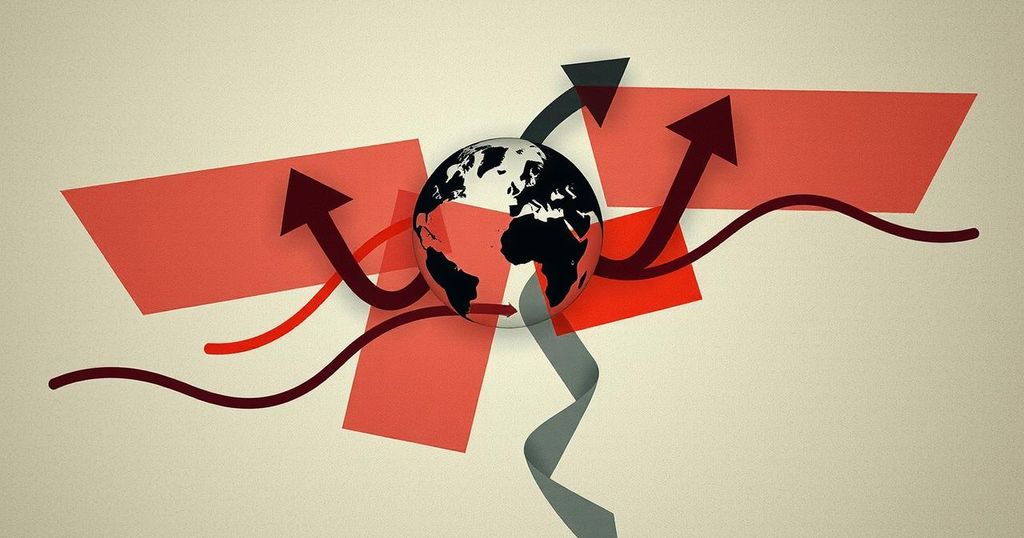US-Russia discussions in Riyadh aimed to improve understanding on Ukraine but excluded Ukraine itself, drawing criticism. Saudi Arabia seeks to enhance ties with the US while addressing ongoing tensions in Gaza. Lavrov claimed fruitful talks could lead to sanctions reevaluation. Saudi Arabia aspires to elevate its status as a regional and global mediator in these conflicts.
Russia claims that its discussions with the United States in Riyadh improved American understanding of its stance on Ukraine. Saudi Arabia seeks to enhance its diplomatic relations with Washington through these talks, which have faced Ukrainian criticism for their exclusion from the discussions. Meanwhile, Riyadh is also preparing to host a significant Arab summit regarding the Gaza situation this week, emphasizing its role as a regional mediator.
Russian Foreign Minister Sergei Lavrov met with Saudi Crown Prince Mohammed bin Salman and key US officials, including Secretary of State Marco Rubio. Lavrov described the conversations as productive, asserting that both sides not only listened but also comprehended each other’s positions, which he believes may lead to a reconsideration of US sanctions on Russia. He indicated a US interest in removing obstacles for economic collaboration.
Amid ongoing tensions, Saudi Arabia aims to restore its relationship with the US, significantly strained by Washington’s support for Israel’s actions in Gaza. Previously, Saudi Arabia was anticipated to normalize relations with Israel, following in the footsteps of its neighbors. However, the ongoing humanitarian crisis in Gaza has hindered these developments, with the Crown Prince condemning Israel’s actions and demanding a Palestinian state as a precondition for any normalization.
Expert analysis suggests that hosting the US-Russia talks enhances Saudi Arabia’s aspirations to be recognized as a major power not only regionally but also on the global stage. By facilitating discussions on the Ukraine conflict, Saudi Arabia seeks to elevate its influence and align itself with other significant emerging economies while restoring its position as a key player in international diplomacy.
As Saudi Arabia strives to assert its authority in regional affairs, it is also expressing its commitment to addressing the Gaza crisis. This upcoming summit aims to provide a platform for discussion on reconstruction and humanitarian assistance, countering any US-led plans that could force the relocation of Palestinian populations. Riyadh is making efforts to reclaim its role as a peace broker in the Israeli-Palestinian conflict amidst rising tensions.
After the meetings, representatives from the US and Russia reached an agreement to commence negotiations aimed at resolving the Ukraine conflict. Discussions will center on territory and security guarantees, advocating for a permanent resolution rather than a temporary cessation of hostilities. This agreement underscores the ongoing rivalry and differing responses between European nations and the US regarding their approach to Russia’s invasion of Ukraine.
Ukrainian President Volodymyr Zelensky criticized the US for excluding Ukraine from these critical discussions, underscoring the importance of including Ukrainian perspectives in any negotiations that affect their sovereignty. He rejected the notion of ultimatums directed at Ukraine and insisted on Turkey’s inclusion in future talks. Various Middle Eastern countries have pursued their own diplomatic initiatives in the ongoing conflict, showcasing their willingness to facilitate dialogue between the involved parties.
In conclusion, the recent US-Russia talks in Saudi Arabia reflect complex diplomatic interactions surrounding the Ukraine conflict amidst regional tensions regarding Gaza. While Russia asserts progress in understanding, Ukraine’s exclusion raises critical concerns about sovereignty in negotiations affecting its future. As Saudi Arabia navigates its role as both a peacemaker and a rising power, the broader implications for US relations in the Middle East remain uncertain as they grapple with ongoing crises.
Original Source: www.middleeasteye.net






